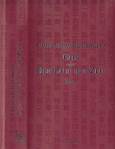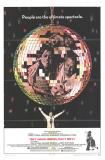Unterricht im Fach Politik-Wirtschaft braucht: A radical reformation of economics education
Hilfreiche Hinweise aus den USA:
Real-World Economics Review
Issue no. 62, 15 December 2012
In der aktuellen Ausgabe findet sich ein bemerkenswerter Aufsatz:
A radical reformation of economics education: educating real world economists
von Jack Reardon [Hamline University, Minnesota, USA], der die herrschende ökonomische Lehre in den USA fundamental kritisiert und eine andere Didaktik der Ökonomie einfordert. Seine Kritik lässt sich auch lesen als eine des hier vorherrschenden Unterrichts im Fach Politik-Wirtschaft!!*
Insofern sei er interessierten PolitikLehrerinnen und -Lehrern sehr empfohlen!
Abstract:
Our generation is confronted with many problems including climate change, a global financial crisis, a palpable disparity in income and wealth, and a health care crisis. These problems are mutually reinforcing and will only worsen. At the center, however, is the discipline of economics itself and economics education, which obfuscates the interrelationship of our problems, inures its students to human suffering and abnegates thoughtful discussion of the human predicament. This paper will briefly discuss the problem of economics education, and then present a vision for a radical restructuring of the economics curriculum.
Auszüge:... Imagine a physicist being told that her lectures had nothing to do with the physical world; or an anatomy professor being told that his lectures had nothing to do with the human body. Wouldn’t there be umbrage; a humbled admission of fault and a dedicated desire to amend the pedagogy?
Not so with neoclassical economics, which claims that “economics isn’t defined by its subject matter but by its way of thinking” (Coyle 2007 p. 231-232). No wonder students are disappointed and perplexed when they open up a textbook and expect to learn about the economy in which they live and (will) work, only to be told that economics is about allocating scarce resources among unlimited wants and then hit with an abstract production possibilities curve to drive home the point...
The problem with neoclassical pedagogy is threefold:
First, a disconnect between what is taught as subject matter and how the world works... Simply put, neoclassical economics has failed to construct a workable model that reflects the world in which we live, while “critical thought is pushed aside to make room for apocryphal stories of how human selfishness in an unfettered market environment leads to social progress” Magnuson (2012, p. 13). Rather than teach students how real firms operate in real industries, students are ‘bullied’ (Fullbook, 2009, passim) into accepting basic axioms as true, which is anathema to science (Fullbrook 2009). Students are then asked to use these axioms in order to analyze hypothetical firms in idealized industries, with “ficticious values invented at the desk of the textbook author in order to fit the courageous assumptions necessary for developing the respective economics model” (Otsch and Kappeller 2010, p. 17).
Second, the wilful ignorance of the social sciences and the physical sciences, particularly physics and mathematics,
In other sciences, chaos theory, complexity analysis and their close cousin evolutionary theory have had profound impacts. It shows how isolated economics has become from the scientific mainstream of the late 20th and early twenty-first century that such ignorant views could be commonplace (Keen 2012, p. 410).
Third, neoclassical pedagogy is anti-pluralist. Instead of enabling students to grasp the complexity of our problems with a multi-faceted emphasis on different theoretical and empirical approaches, neoclassical economists train students to think like economists – as if all economists think alike – and that only one perspective exists, while denying the legitimacy of all others. Partly this is due to the “incestuous relationship between capitalism and economics” (Dowd 2004, p. xiii) whereby neoclassical economists are ideological apologists for the business community and capitalism” (Lee 2009, p. 49)....
________________
* ... to be told that economics is about allocating scarce resources among unlimited wants and then hit with an abstract production possibilities curve to drive home the point ... ist ungefähr das, was Schülerinnen und Schülern der 8. Klassen in Niedersachsen im Fach Politik-Wirtschaft zugemutet wird!
Vgl. There is no such thing as society - Das Elend der politisch-ökonomischen Bildung
Ähnlich wie Reardon argumentiert auch Reinhold Hedtke: Sozialwissenschaftliche ökonomische Bildung
Real-World Economics Review
Issue no. 62, 15 December 2012
In der aktuellen Ausgabe findet sich ein bemerkenswerter Aufsatz:
A radical reformation of economics education: educating real world economists
von Jack Reardon [Hamline University, Minnesota, USA], der die herrschende ökonomische Lehre in den USA fundamental kritisiert und eine andere Didaktik der Ökonomie einfordert. Seine Kritik lässt sich auch lesen als eine des hier vorherrschenden Unterrichts im Fach Politik-Wirtschaft!!*
Insofern sei er interessierten PolitikLehrerinnen und -Lehrern sehr empfohlen!
Abstract:
Our generation is confronted with many problems including climate change, a global financial crisis, a palpable disparity in income and wealth, and a health care crisis. These problems are mutually reinforcing and will only worsen. At the center, however, is the discipline of economics itself and economics education, which obfuscates the interrelationship of our problems, inures its students to human suffering and abnegates thoughtful discussion of the human predicament. This paper will briefly discuss the problem of economics education, and then present a vision for a radical restructuring of the economics curriculum.
Auszüge:
Not so with neoclassical economics, which claims that “economics isn’t defined by its subject matter but by its way of thinking” (Coyle 2007 p. 231-232). No wonder students are disappointed and perplexed when they open up a textbook and expect to learn about the economy in which they live and (will) work, only to be told that economics is about allocating scarce resources among unlimited wants and then hit with an abstract production possibilities curve to drive home the point...
The problem with neoclassical pedagogy is threefold:
First, a disconnect between what is taught as subject matter and how the world works... Simply put, neoclassical economics has failed to construct a workable model that reflects the world in which we live, while “critical thought is pushed aside to make room for apocryphal stories of how human selfishness in an unfettered market environment leads to social progress” Magnuson (2012, p. 13). Rather than teach students how real firms operate in real industries, students are ‘bullied’ (Fullbook, 2009, passim) into accepting basic axioms as true, which is anathema to science (Fullbrook 2009). Students are then asked to use these axioms in order to analyze hypothetical firms in idealized industries, with “ficticious values invented at the desk of the textbook author in order to fit the courageous assumptions necessary for developing the respective economics model” (Otsch and Kappeller 2010, p. 17).
Second, the wilful ignorance of the social sciences and the physical sciences, particularly physics and mathematics,
In other sciences, chaos theory, complexity analysis and their close cousin evolutionary theory have had profound impacts. It shows how isolated economics has become from the scientific mainstream of the late 20th and early twenty-first century that such ignorant views could be commonplace (Keen 2012, p. 410).
Third, neoclassical pedagogy is anti-pluralist. Instead of enabling students to grasp the complexity of our problems with a multi-faceted emphasis on different theoretical and empirical approaches, neoclassical economists train students to think like economists – as if all economists think alike – and that only one perspective exists, while denying the legitimacy of all others. Partly this is due to the “incestuous relationship between capitalism and economics” (Dowd 2004, p. xiii) whereby neoclassical economists are ideological apologists for the business community and capitalism” (Lee 2009, p. 49)....
________________
* ... to be told that economics is about allocating scarce resources among unlimited wants and then hit with an abstract production possibilities curve to drive home the point ... ist ungefähr das, was Schülerinnen und Schülern der 8. Klassen in Niedersachsen im Fach Politik-Wirtschaft zugemutet wird!
Vgl. There is no such thing as society - Das Elend der politisch-ökonomischen Bildung
Ähnlich wie Reardon argumentiert auch Reinhold Hedtke: Sozialwissenschaftliche ökonomische Bildung
gebattmer - 2012/12/16 22:10



























































Trackback URL:
https://gebattmer.twoday.net/stories/232595285/modTrackback